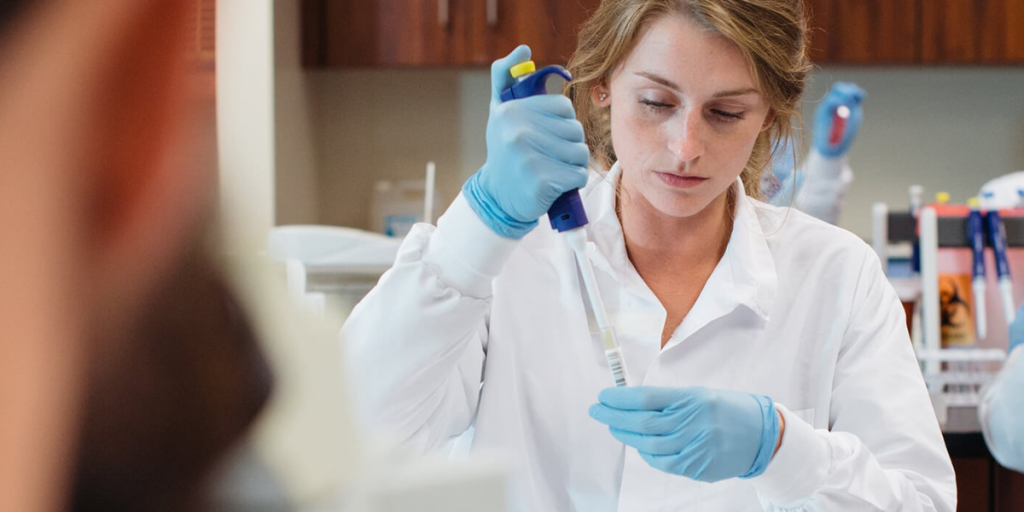As the days grow warmer and sunnier, many Alabamians seem to have pushed away all concerns about COVID-19.
However, the disease still lingers. Indeed, COVID-19’s most highly contagious forms – the Delta, Gamma and Beta variants – are in Alabama, said Dr. Paul Goepfert, professor in UAB’s Division of Infectious Diseases. As of June 22, UAB Hospital is treating seven patients for active COVID-19 infections, its smallest number of COVID-19-positive patients since March 22, 2020. Another 19 patients were admitted earlier for COVID-19 and, while not showing active infections, require in-hospital care.
All viruses, including the SARS-CoV-2 virus that causes COVID-19, mutate over time. Goepfert’s latest worry is that the Delta variant could cause an upsurge in infections in the nation’s undervaccinated areas, including the Yellowhammer State. While more than 1.7 million residents have received at least one dose of COVID-19 vaccine, only 31.9% of Alabamians are fully vaccinated. Though the variants are increasing to varying degrees, he said the Delta variant is believed to be more transmissible and to cause more severe disease. Because of Delta’s increased activity, Goepfert expects the variant to dominate during the next few months, intensifying the need for residents to be fully vaccinated.
“Citizens of Alabama cannot rely on just previous infection alone to be a protection against this Delta variant,” said Goepfert, who is board-certified in Medicine and Infectious Diseases. “I think if you’re vaccinated, you should be happy these vaccines are still working. If you’re not vaccinated, that’s another story.”
The Pfizer and Moderna vaccines are about 90% effective against the Delta variant, which now comprises about 90% of COVID-19 cases in the United Kingdom.
People who have been infected with COVID-19 have natural immunity, Goepfert said, but that offers less protection against some of the variants than being vaccinated. He said “real-world data” shows that the variants currently pose little reduction, if any, in the effectiveness of COVID-19 vaccines.
Goepfert said all strains have some susceptibility to the COVID-19 vaccine. Many of the variants arose outside the U.S., where there was little or no vaccine.
“So now the problem is, I suspect, that this virus, if it’s teaching us anything from before, it’s going to learn to mutate,” said Goepfert, who has worked at UAB since 1997. “Perhaps one of the best examples of that is what we’ve seen in South Africa and Brazil. In South Africa, there are data that people who got infected with the original strain, despite having been infected, have no protection against the Beta variant. In Brazil, there’s similar data that suggests the same thing with the Gamma variant. And for the Delta variant, there’s likely data like that in India.”
UAB researchers and a host of others testing COVID-19’s ever-growing mutated variants continue to learn more about how the disease works. Goepfert said that UAB’s Dr. Sixto Leal, associate scientist in the Center for Clinical and Translational Science and a professor in the Department of Pathology, is at the forefront of variant research in Alabama. The data, which is either peer-review published or has been submitted for publication, suggests that all COVID-19 vaccines offer protection against the variants.
“Dr. Leal and his colleagues have done a fantastic job of testing the variants,” Goepfert said.
All COVID-19 vaccines contain a small amount of the spike protein from the SARS-CoV-2 virus. “The spike protein is very important in entering an infected cell, so there are like mutations that make it able to enter an infected cell more efficiently,” Goepfert said.
UAB doctors are certain the COVID-19 vaccines help fend off disease. With research proving that the disease is becoming more contagious, doctors continue to encourage Alabamians to get vaccinated to help prevent illness, hospitalizations and deaths.
As Goepfert looks ahead to August, with the beginning of a new school year, he is less worried about efforts to push COVID-19 vaccinations for schoolchildren, because they are better equipped to fight the illness. While only 36,000 of the state’s children between the ages of 12 and 17 have been vaccinated, Goepfert noted that residents 65 and older fare much worse against COVID-19.
“Even if the kids are passing COVID along, in all likelihood, they will do better than adults,” he said. “The adults can be protected if they get vaccinated.”
(Courtesy of Alabama NewsCenter)













